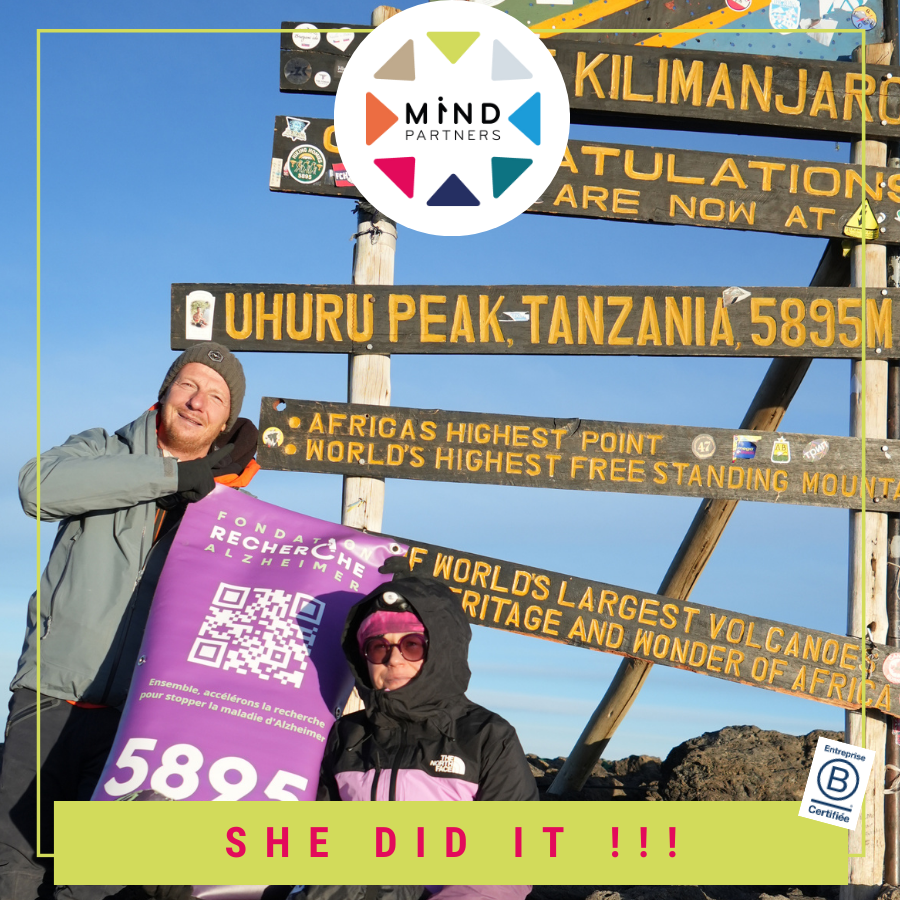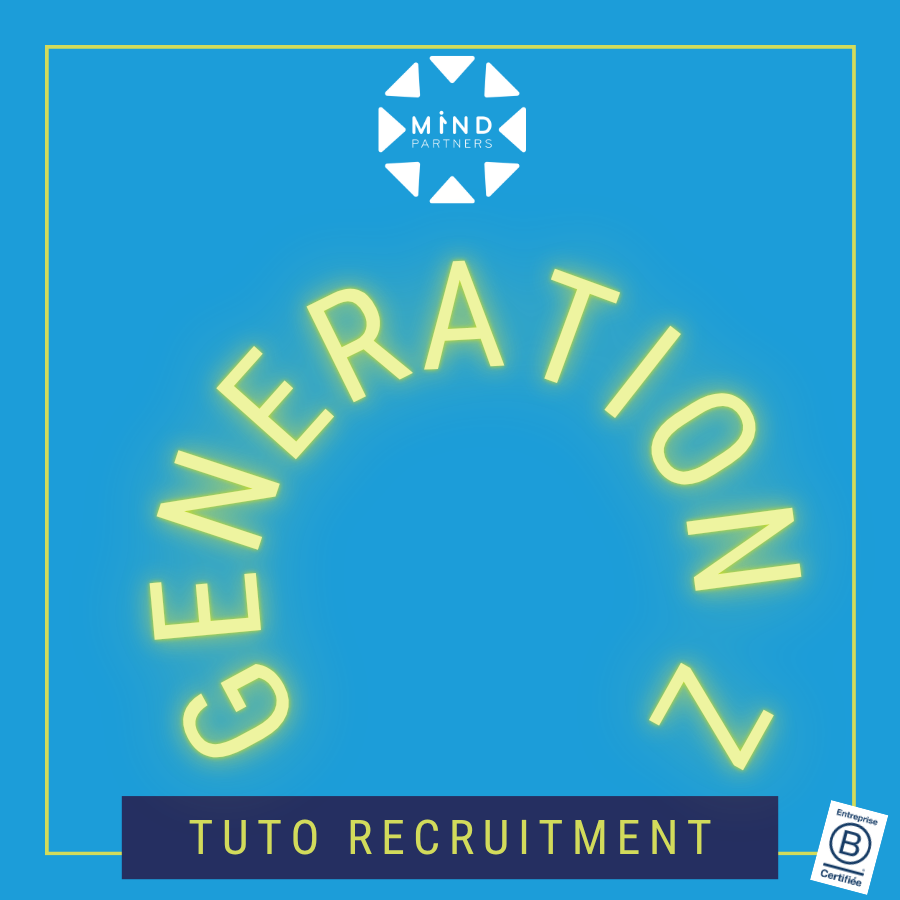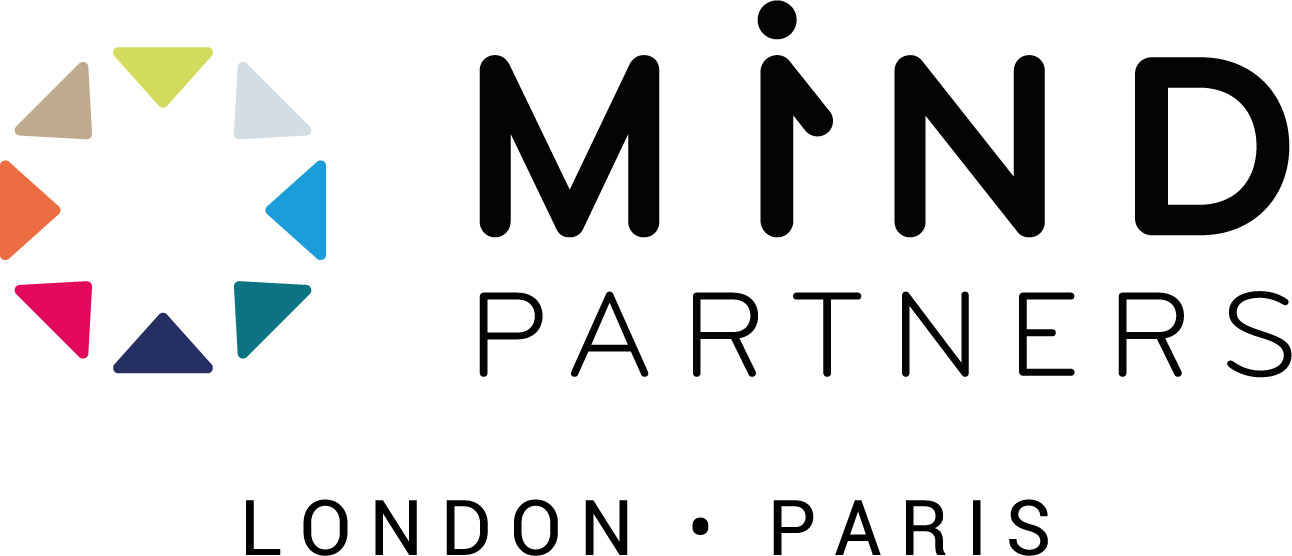

Tutorial (or almost) : Recruiting Generation Z
‘People’ say that Generation Z doesn’t want to work ‘like they used to’. But can you really blame them? This generation, born between 1997 and 2012, has grown up in a constantly changing world, punctuated by environmental, health and economic crises. The ‘way things used to be’ – rigid working hours, vertical management, vague promises of advancement – is no longer the stuff of dreams. Today’s Zs aspire to meaningful working environments that respect their life balance and are based on authentic professional relationships.
For recruiters, the challenge is huge: attracting, convincing and retaining this talent requires a radical overhaul of HR practices. This guide deciphers the expectations of generation Z, suggests practical ways of adapting your recruitment processes, and uses key figures to understand what really motivates this new generation.
Who are Generation Z?
Generation Z numbers almost 2.5 billion people worldwide, including around 12 million in France (source: INSEE, 2024). By 2030, they will account for over 30% of the world’s working population (World Economic Forum, 2023).
Their history is marked by :
- The climate crisis: 77% of young French people aged 18 to 24 say they are worried about the future of the planet.
- The Covid-19 pandemic: this has changed their relationship with work, accelerating digitalisation and the search for flexibility.
- Economic uncertainty: they have experienced mass youth unemployment, insecure first jobs and the rise of the ‘bullshit job’.
Contrary to popular belief, Generation Z does not reject work. They simply want it to be meaningful.
The key expectations of generation Z in the light of recruitment
Horizontal and authentic management
No more all-powerful bosses! Generation Z say they want to work in an organisation where management is ‘accessible’, “responsive” and ‘caring’. They expect :
- Regular, constructive feedback (rather than annual appraisals).
- Managers who act as coaches or mentors.
- Immediate recognition for success.
Flexibility and life balance
Generation Z rejects fixed working hours and presenteeism.
According to a Welcome to the Jungle survey (2024):
- 74% of young professionals would like to be able to telework at least 2 days a week.
- 68% consider flexible working hours to be a decisive criterion for accepting a job.
- 55% would be prepared to refuse an offer if the company did not propose measures to preserve life balance.
Diversity, inclusion and commitment
Diversity is not a “plus”, it’s a prerequisite: Z employees want to work in companies that are committed to equality and inclusion and expect :
- Concrete actions (and not just slogans).
- Teams that are representative of society.
- An environment where everyone can be themselves.
Transparency and career prospects
Generation Z wants to understand: what impact will my work have? What are the prospects? 63% of the young people surveyed by LinkedIn believe that ‘transparency about tasks, culture and career development’ is a key factor in attracting them.
How to rethink the recruitment process
Slogans are no longer enough
In the age of transparency, empty promises are no longer acceptable. Generation Z checks, investigates and compares. 85% consult reviews on Glassdoor or Indeed before applying. They expect proof:
- Testimonials from employees.
- Concrete examples of CSR actions.
- Figures on diversity and inclusion.
Make the process interactive and human
One-way recruitment is a thing of the past. We need to :
Encourage dialogue: be able to ask questions and talk freely during interviews.
Test human compatibility: personality and soft skills count as much as qualifications.
Involve your teams: propose meetings with future colleagues or managers.
Be transparent from the outset
As soon as the job offer is made, be clear about :
- The actual tasks (avoid ‘bullshit’).
- Salary, benefits and career development prospects.
- Work arrangements (teleworking, working hours, tools, etc.).
For example, add to each offer: remuneration, teleworking policy and team values.
Digitalising without dehumanising
Generation Z is ultra-connected: 98% use a smartphone and 82% are active on LinkedIn. But be careful not to fall into the trap of all-automation! Bots and online tests, yes, but always with a human touch:
- Give preference to videos presenting the teams.
- Offer the opportunity to ask questions live.
- Send personalised feedback, even in the event of a refusal.
Mistakes to avoid (and how to correct them)
Top-down, formatted interviews
An interview where the recruiter asks closed questions, without letting the candidate speak? This is a no-no for most Zs. Prefer :
- Collaborative interviews.
- Real-life situations.
- Informal exchanges (e.g. virtual coffee with the team).
Lack of feedback
One in two Generation Z candidates say they have not received any feedback after an interview. Yet most would like to receive feedback, even negative feedback, to help them progress. Solution:
Send a personalised email after each stage.
Offer a short telephone call to debrief.
Opaqueness about prospects
Promise rapid progress without explaining the stages? Be specific:
- Describe typical career paths within the company.
- Give examples of successful internal transfers.
- Display figures on internal promotions.
10 best practices for attracting and retaining generation Z
- Look after your employer brand: be authentic, show off your teams, your premises and your values.
- Be transparent about salaries and working conditions: avoid ‘subject to negotiation’ or ‘depending on profile’.
- Offer flexibility: teleworking, flexible working hours, 4-day week, etc.
- Promote the impact of the job: explain in concrete terms what the future employee’s work will be used for.
- Involve your teams in the recruitment process: get them to meet your future colleagues.
- Offer clear training and development paths: show the possibilities for growth within your company.
- Focus on diversity and inclusion: concrete actions, figures, testimonials.
- Encourage feedback and recognition: congratulate, encourage and support.
- Digitalise the process, but keep the human touch: videos, video exchanges, personalised feedback.
- Communicate your CSR commitments: environment, inclusion, solidarity.
Generation Z, driving change
Generation Z is not rejecting work: it is reinventing it. Demanding, connected and committed, they are pushing businesses to reinvent themselves too. Organisations that understand these new codes gain in attractiveness, but also in lasting commitment.
The recruitment agency: supporting you!
At Mind Partners, every day we work with HR recruiters to better understand these expectations, attract and retain today’s talent, and prepare for the future.
And what about you? Do your vacancies really speak to Generation Z? It’s time to take action!
Sources: Ipsos, 2023 – Baromètre APEC, 2024 – Glassdoor, 2024 – Médiamétrie, 2024 – HelloWork study, 2024
Recent news

Social and solidarity achievement:

Job offer Mind Partners UK x Winback Group:
Managing Director

